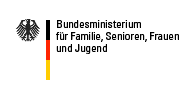Gender as a “structural category”
Gender as a “structural category”
Gender relations are today an important part of the social order. Therefore, gender is also described as a structural category, because it influences structures. What this is emphasising is the fact that gender is not just an individual characteristic describing individual people, but that ideas about gender are inscribed in organizations, social relations and legislative systems. So one hears “gender orders” or “gender relations” being talked about.
Traditionally, gender relations are associated with a hierarchical notion of the superiority of the man (patriarchy) and a male norm (androcentricity). Patriarchy describes a social order in which a patriarch has the power to make decisions; this is closely linked with the idea of “paternalism”, in which a father (pater familias) makes decisions for the family, albeit well-meaning, but nonetheless alone.
Androcentricity defines the way in which thinking, feeling and acting are not gender neutral but, in our culture, relate primarily to men and take absolutely no account of the life situations and experiences of women. In other words, the male subject is the paradigm for the human race, which is enshrined in language in the term “mankind”. Along with this, values and norms in thinking and acting in society, politics and culture are implicitly encumbered with gender specific values. The family is thus the feminine place, while politics is masculine. Emotions are feminine and thinking is masculine. Caring is feminine, aggression in masculine. Et cetera. These are not just personal opinions, which mostly do injustice to individuals, but are stereotypes, which guide actions and are deeply rooted in our cultures.
Traditionally, gender relations are associated with a hierarchical notion of the superiority of the man (patriarchy) and a male norm (androcentricity). Patriarchy describes a social order in which a patriarch has the power to make decisions; this is closely linked with the idea of “paternalism”, in which a father (pater familias) makes decisions for the family, albeit well-meaning, but nonetheless alone.
Androcentricity defines the way in which thinking, feeling and acting are not gender neutral but, in our culture, relate primarily to men and take absolutely no account of the life situations and experiences of women. In other words, the male subject is the paradigm for the human race, which is enshrined in language in the term “mankind”. Along with this, values and norms in thinking and acting in society, politics and culture are implicitly encumbered with gender specific values. The family is thus the feminine place, while politics is masculine. Emotions are feminine and thinking is masculine. Caring is feminine, aggression in masculine. Et cetera. These are not just personal opinions, which mostly do injustice to individuals, but are stereotypes, which guide actions and are deeply rooted in our cultures.
Further reading
Wetterer, Angelika: Das Verschwinden der Ungleichheit aus dem zeitgenössischen Differenzwissen, in: Knapp, Gudrun-Axeli/ Wetterer, Angelika (Hrsg.): Achsen der Differenz. Gesellschaftstheorie und feministische Kritik II. Münster 2003, S. 286-319.
erstellt von Administrator
—
zuletzt verändert:
02.01.2010 20:08





